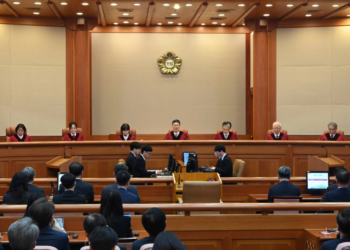Washington, DC – The detention facility at Guantanamo Bay, Cuba, turns 23 on Saturday.
For Mansoor Adayfi, a former inmate at the prison, the anniversary marks 23 years of “injustice, lawlessness, abuse of power, torture and indefinite detention”.
Only 15 prisoners remain at the United States military prison, known as Gitmo, which once held about 800 Muslim men — a dwindling number that gives advocates hope that the facility will eventually be shut down, turning the page on the dark chapter of history it represents.
But Adayfi, who now serves as a coordinator for the Guantanamo Project at the advocacy group CAGE International, says truly closing down Gitmo means delivering justice to its current and former detainees.
“The United States must acknowledge its wrongdoing, must issue a formal, official apology to the victims, to the survivors,” Adayfi told media. “There must be reparation, compensation and accountability.”
Guantanamo opened in 2002 to house prisoners from the so-called “war on terror”, a reaction to the attacks on September 11, 2001, in the US.
Detainees were arrested in countries across the world on suspicions of ties to al-Qaeda and other groups. Many endured horrific torture at secret detention facilities, known as black sites, before being transferred to Guantanamo.
At Gitmo, detainees had few legal rights. Even those cleared for release through Guantanamo’s alternative justice system, known as military commissions, remained imprisoned for years with no recourse to challenge their detention.
And so, the prison has become synonymous with the US government’s worst abuses in the post-9/11 era.









 United Arab Emirates Dirham Exchange Rate
United Arab Emirates Dirham Exchange Rate

